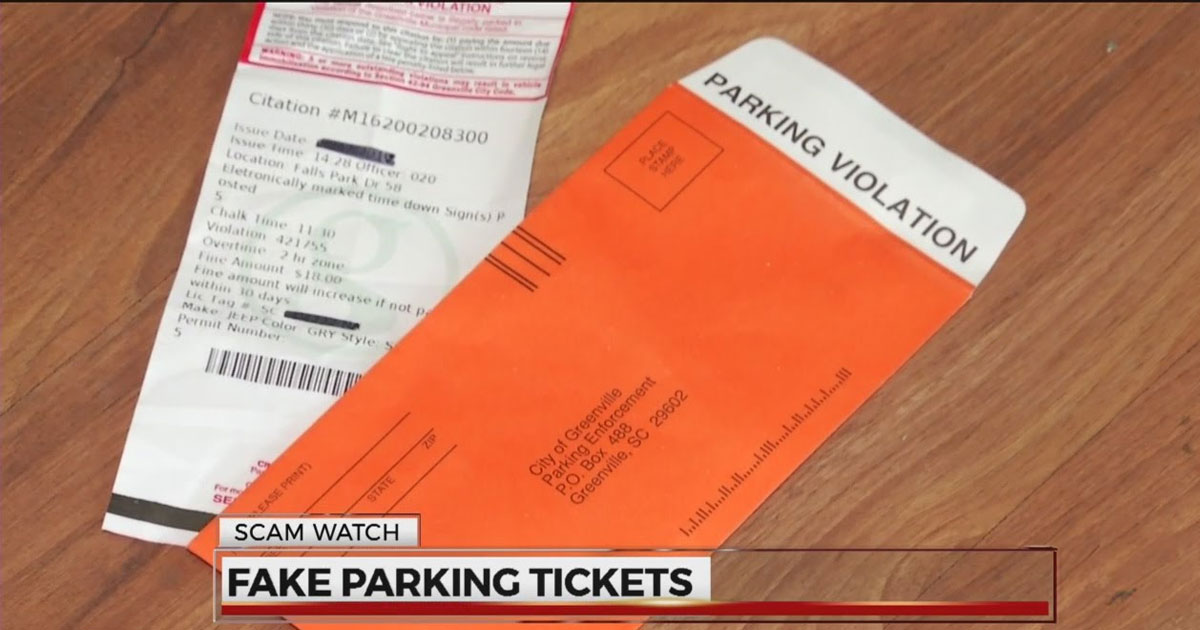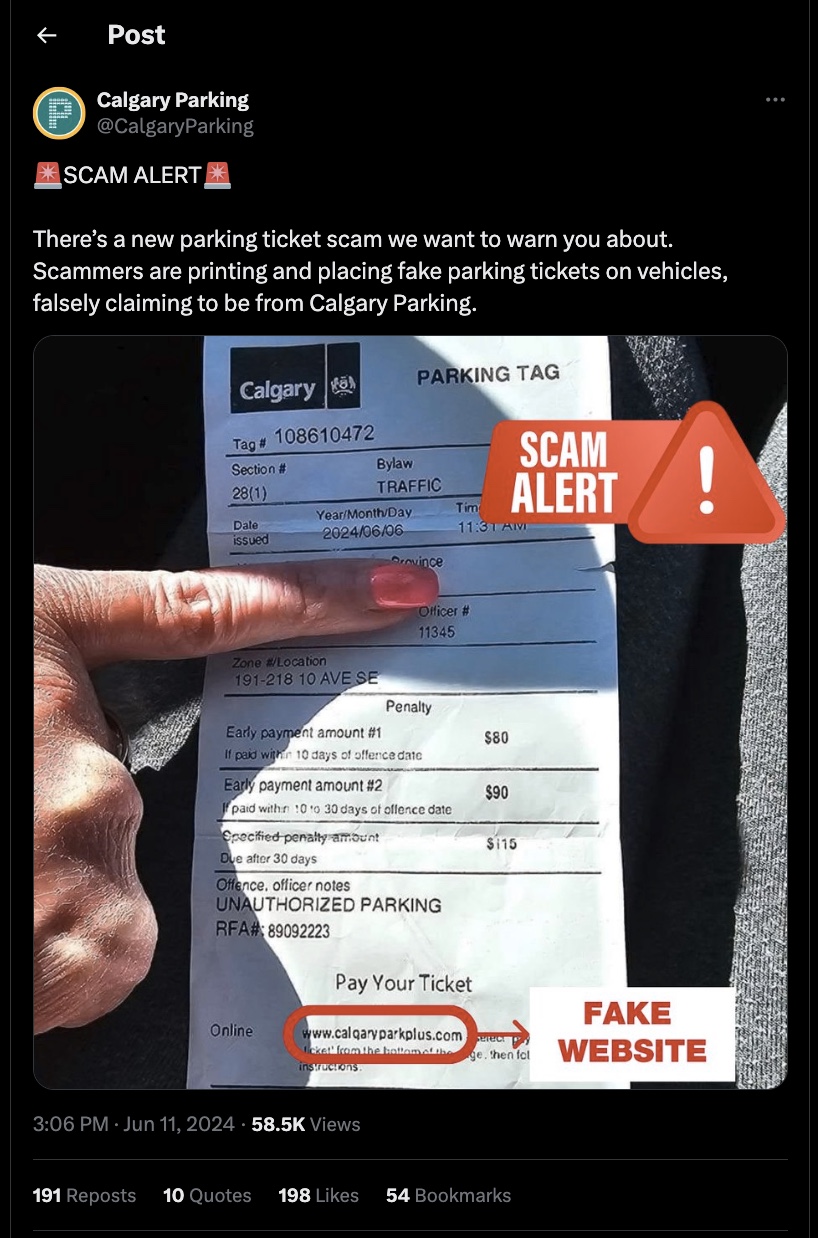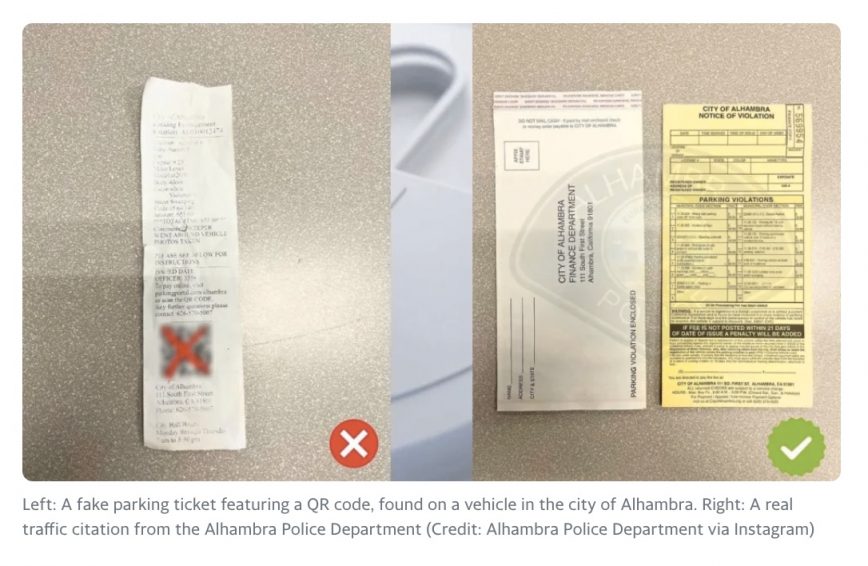New Scam Targets Drivers With Fake Parking Tickets

New Scam Targets Drivers With Fake Parking Tickets
Parking tickets are a headache we all try to avoid. But imagine discovering one on your windshield, only to find out later it wasn’t real but a ploy to steal your banking information. That’s the latest scam making waves, and it’s happening in places you wouldn’t expect. Criminals have found a new way to exploit drivers, and it’s more convincing than you might think.
A Convincing Deception: How the Scam Works
This scam isn’t just about leaving a fake slip on your car. Scammers have gotten pretty sophisticated, producing parking tickets that look strikingly similar to the real thing. These fraudulent tickets are often printed with precision, mimicking official citations issued by city parking enforcement agencies. They include your vehicle’s details, the reason for the supposed infraction, and even a QR code that takes you to a payment site.

At first glance, everything seems legitimate. The ticket looks just like any other parking violation notice. It’s only when you dig deeper that the deception becomes clear. The QR code is the linchpin of the scam, directing unsuspecting victims to a fake website designed to steal their personal and banking information. Once you’ve landed on the fake site, you might unknowingly hand over sensitive details, thinking you’re simply paying a parking fine.

The Risks of Scanning That QR Code
The QR code on these fake tickets is more than just a link to a bogus website. It’s a gateway to potential financial disaster. Scanning the code might not only lead you to a fraudulent payment page but could also download malicious software onto your device. This malware can do everything from tracking your keystrokes to accessing your personal information stored on your phone or computer.
Top most 6 reported parking lot scams you should know about
- Fake Windshield Tickets
- Bogus Parking Attendants
- Fake QR Codes
- SMS Scams
- Phishing Emails and Websites
- Bogus Parking App Scams
Alhambra Police Sgt. Michael Montano emphasized the seriousness of the situation, warning residents not to scan these QR codes under any circumstances. “Scammers create QR codes to trick people into visiting a fraudulent website or downloading malware that compromises their personal information,” Montano explained. The police department has taken this matter seriously, urging citizens to stay vigilant and avoid falling victim to this scam.
How to Spot a Fake Ticket: Key Differences
So, how can you tell if the parking ticket on your car is legitimate or a scam? It all comes down to the details. While the fake tickets are nearly identical to real ones, there are subtle differences that can help you spot a fraud.
One of the biggest giveaways is the website URL listed on the ticket. Official city-issued tickets will always direct you to the city’s secure website. For instance, in Alhambra, the legitimate URL is www.cityofalhambra.org. If the ticket directs you to a different site, that’s a red flag. The fake tickets often use URLs that are similar but not quite right, tricking people into thinking they’re dealing with a legitimate site.
Another key difference is the appearance of the ticket itself. Police have shared images of the only two types of citations issued by the city, making it easier for residents to compare and identify fake ones. If your ticket doesn’t match these official examples, it’s best to err on the side of caution and assume it’s a scam.
What to Do If You Find a Fake Ticket
If you suspect that the ticket on your car is fake, the first step is not to panic. Instead, take a closer look at the details. Check the URL and compare the ticket to the images provided by the police. If you’re still unsure, don’t hesitate to contact the Alhambra Police Department’s Traffic Division at 626-570-5119. They can verify whether the ticket is legitimate or a scam.
It’s also crucial to report any fake tickets you find. By doing so, you’re helping the authorities track down the scammers and potentially prevent others from falling victim to the same scheme. Reporting these incidents provides valuable information that can be used to shut down these operations and bring the criminals to justice.
Scams Spreading Across North America
This isn’t just a local problem. The fake parking ticket scam has been reported in cities across North America, from New York to Southern California, and even as far as Calgary in Canada. It seems that scammers are casting a wide net, hoping to catch as many victims as possible.
In Calgary, the parking authority has been proactive in warning drivers about the scam. They’ve advised residents to destroy any fake tickets they find and not to follow the payment instructions. The fraudulent tickets in Calgary direct drivers to a website that looks official but isn’t associated with the city’s actual payment platforms.
The rise of this scam has prompted a broader discussion about the security of parking enforcement systems. Cities are now looking into ways to make their tickets harder to replicate and considering new methods to protect residents from these types of scams.
The Growing Threat of Digital Scams
This parking ticket scam is just one example of how digital scams are evolving. As technology becomes more integrated into our daily lives, scammers are finding new ways to exploit it. QR codes, once seen as a convenient tool for sharing information, have now become a weapon in the scammer’s arsenal. They’re easy to create, and most people don’t think twice about scanning them.
The use of fake websites is another common tactic. These sites are often designed to look exactly like the real thing, complete with logos, official-sounding language, and even secure-looking payment forms. But behind the scenes, these sites are capturing your information and using it for fraudulent purposes.
What makes these scams particularly dangerous is their ability to target anyone, anywhere. Whether you’re in a bustling city or a quiet suburb, you could find yourself on the receiving end of one of these fake tickets. The widespread nature of these scams means that everyone needs to be on high alert.
Protecting Yourself from Scams
With scams becoming more sophisticated, it’s important to take steps to protect yourself. Here are some tips to help you stay safe:
- Verify URLs: Always double-check the website address before entering any personal information. If something looks off, it probably is.
- Use Trusted Payment Methods: Whenever possible, use official payment platforms linked directly from a trusted source.
- Be Cautious with QR Codes: Don’t scan QR codes from unfamiliar sources. If you’re unsure, contact the issuing agency directly to confirm the legitimacy.
- Report Suspicious Activity: If you encounter a scam, report it to the authorities. This helps protect others and assists in tracking down the perpetrators.
- Stay Informed: Keep up to date with the latest scams and tactics used by criminals. The more you know, the better prepared you’ll be to avoid falling victim.
The Role of Law Enforcement and Public Awareness
Law enforcement agencies play a crucial role in combating these scams. By alerting the public and providing clear guidelines on how to identify fake tickets, they help reduce the number of victims. Public awareness campaigns, like the one conducted by the Alhambra Police Department, are essential in spreading the word and educating residents about the risks.
Police departments across North America are now taking a closer look at how they issue parking tickets. Some are considering adding more security features to the tickets themselves, such as watermarks or holograms, making them harder to counterfeit. Others are exploring the use of digital tickets sent directly to the registered owner’s email, bypassing the need for a physical ticket on the windshield altogether.
Looking Ahead: The Future of Parking Enforcement
As cities adapt to these new threats, the future of parking enforcement may look very different. We could see a shift towards more digital solutions, where physical tickets become a thing of the past. This would not only make it harder for scammers to replicate tickets but also streamline the process for drivers, allowing them to handle fines more efficiently.
However, with new technology comes new challenges. As parking enforcement evolves, so too will the tactics used by scammers. It’s a constant game of cat and mouse, with law enforcement and criminals each trying to stay one step ahead of the other.
For now, the best defense is awareness. By staying informed and vigilant, you can protect yourself from falling victim to this and other scams. Remember, if something doesn’t feel right, trust your instincts and verify before taking action.
In conclusion, the fake parking ticket scam is a stark reminder of the lengths to which scammers will go to steal your information. By paying close attention to the details and staying informed about the latest threats, you can keep your personal and financial information safe. And as always, when in doubt, reach out to the authorities for assistance.

